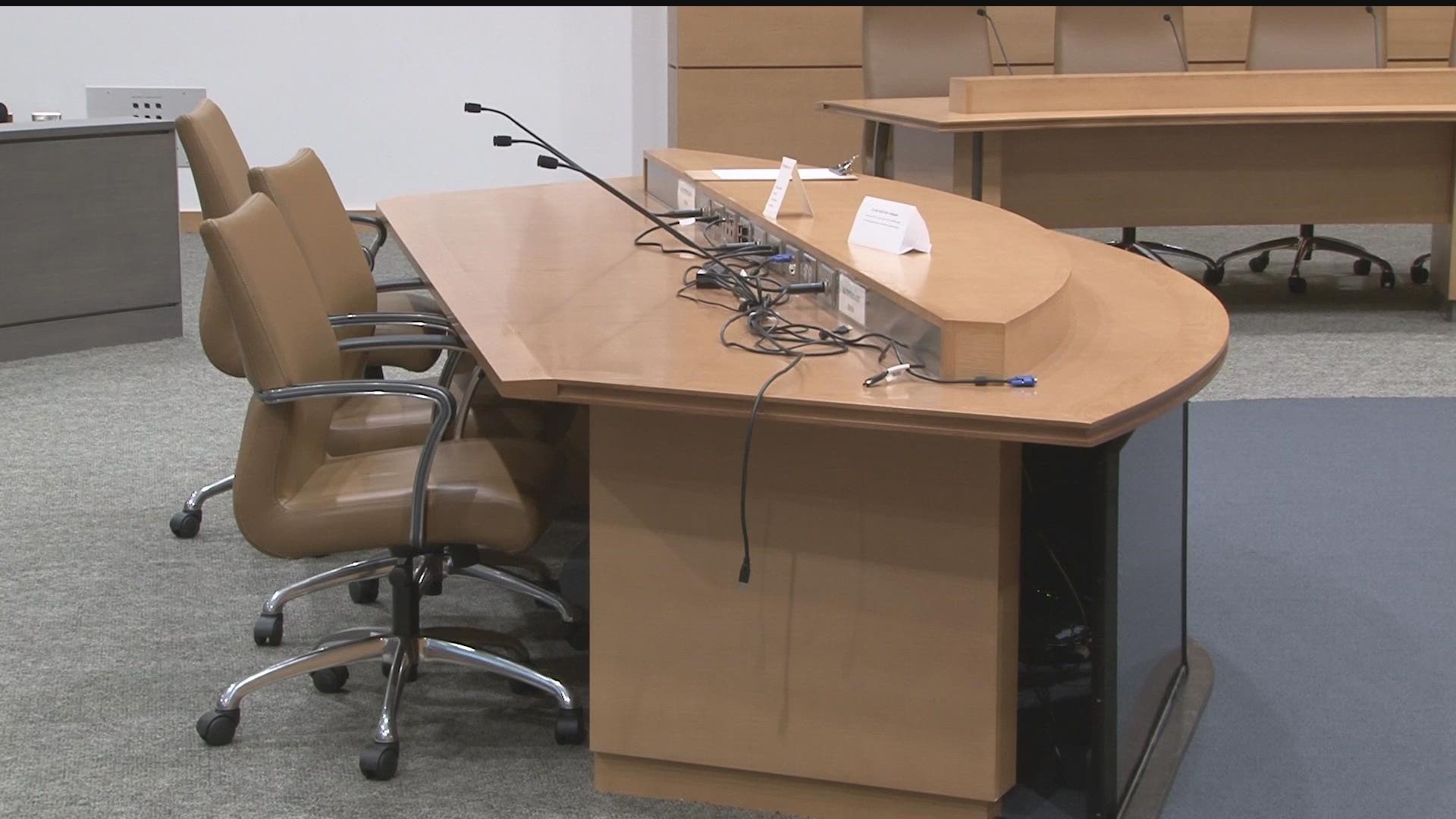ST PAUL, Minn. — The witness table in Senate Hearing Room 1100 sat empty Thursday as lawmakers traded barbs about the scope and purpose of an ongoing ethics investigation.
The Minnesota Senate Ethics Subcommittee had expected to hear testimony from Dawson Kimyon, a former aide to Sen. Omar Fateh of Minneapolis. But two and a half hours before the hearing was scheduled to begin, Kimyon's attorney sent an email to the committee's lawyer saying his client wouldn't appear without a formal subpoena.
"At 6:36 in the morning getting an email saying, 'no Subpoena we’re not appearing' is very disturbing," Republican Sen. Dave Osmek, the committee's chair, told fellow members.
"This is a very serious process. It needs to be taken seriously."
Sen. Patricia Torres Ray, one of the two Democrats on the four-person panel, questioned the value of bringing in more witnesses. She said she didn't understand why the committee is dragging things out across at least four meetings when Fateh has already responded with documents and testimony.
"The person we are reviewing is Senator Fateh. We are reviewing his conduct," Sen. Torres Ray remarked.
"We are reviewing how his conduct impacts the Minnesota Senate, and what do we need to do about it."
Sen. Osmek said he would've preferred not to meet again July 27, but it's essential to hear from the other witnesses.
"At this point in my mind he hasn’t been cleared of the charges. I need to hear from the two individuals, which we all agreed — by subpoena — were going to be here today."
Torres Ray said Fateh should be taken at his word, and if he made mistakes, it should be handled with the information they already have in hand.
"What are we doing here?"
The committee's stated task is to decide whether Fateh's actions rise to the level that would warrant a formal investigation.
"To characterize this as foot-dragging or characterize this as anything but seeking the truth is out of line!" Osmek told her.
RELATED: Sen. Fateh denies ethics violations
Thursday marked the third time the committee has met to investigate ethics complaints filed by a group of seven GOP senators against the Democrat Fateh. One complaint accuses Fateh of accepting free advertising from the Somali TV YouTube channel during the 2020 DFL primary campaign.
But in the first two hearings, Fateh produced receipts showing he paid Somali TV executive producer and director Siyad Salah $1,000 for two ad postings on the YouTube channel and Somali TV's Facebook page. He also updated his campaign finance reports to reflect those payments.
Salah submitted a notarized affidavit supporting Fateh's version, but the committee has issued a subpoena to call Salah as a witness. Sen. Osmek said he wants to know more about how Somali TV handles candidate messaging in general, and what campaigns are charged when the channel hosts those videos.
The other complaint is that Fateh didn't react strongly enough to allegations of absentee ballot fraud that came out in federal court. Fateh's brother-in-law, Muse Mohamud Mohamed, was convicted in May of lying to a federal grand jury about absentee ballots he submitted on behalf of other voters.
Mohamed told the grand jury he delivered ballots on behalf of three other voters, which is legal in Minnesota, but those voters testified that they didn't know Mohamed and hadn't granted permission. That grand jury hasn't issued any election fraud indictments yet, and Fateh himself was never called as a witness.
In previous hearings, Fateh denied having prior knowledge of any alleged ballot violations and said he has always done his utmost to run clean campaigns. The committee decided to call Kimyon as a witness because he managed Fateh's 2020 campaign. Mohamed reportedly testified he got the ballots from someone named "Dawson" at the campaign office.
That office itself is also on Sen. Osmek's radar. Omar's campaign committee listed the 624 East Lake Street as an office location in a 2020 business filing with the Minnesota Secretary of State's office. But there's no reference to office space expenses in Omar's campaign finance reports.
"Corporations are not allowed to make direct donations to campaigns," Osmek explained, noting that even allowing a campaign to use the space free of charge would be considered a donation that would need to be reported.
The structure at that address is an older, single story cinderblock building covered with graffiti and a sign that reads, "Adult Day Center." None of the phone numbers associated with that address were answered Thursday.
The committee authorized subpoenas at its most recent meeting, but decided to give Kimyon and another witness the opportunity to appear voluntarily. Senate Counsel Tom Bottern told lawmakers he had an agreement from Kimyon on June 20 that he'd testify at the next meeting, but that changed Thursday.
Bottern said the process servers will need to serve Kimyon directly, because thus far, the young man hasn't authorized his attorney to receive the subpoena on his behalf. In the case of Siyad Salah, Bottern said the process servers made several unsuccessful attempts to find Salah in June. Since then, however, Salah's attorney as agreed to accept the subpoena on behalf of his client.

